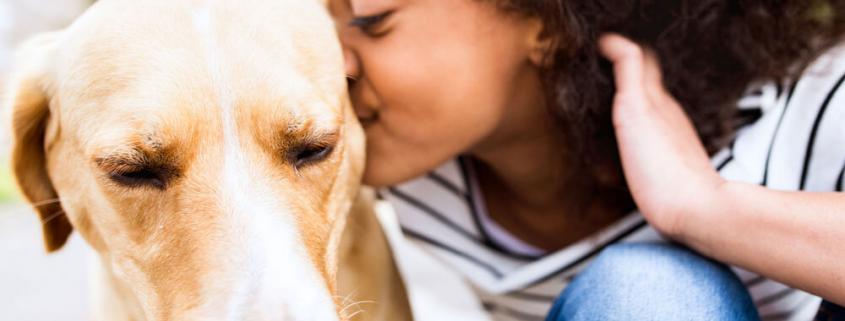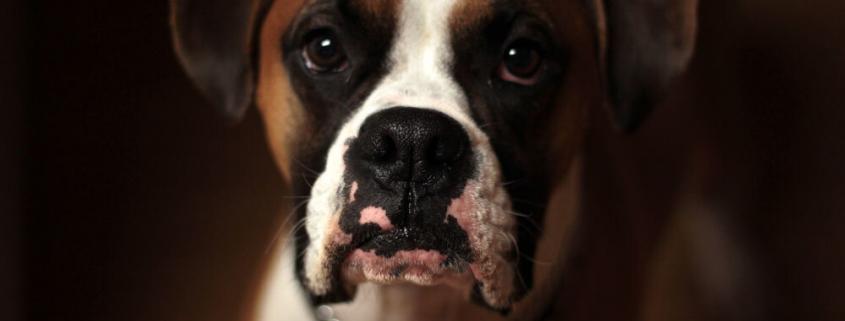Our pets give us more than love, without getting sappy about it, they give us their whole hearts. You’ve probably seen those quotes online that say our pets are only a small part of our lives, but we’re their whole world – it’s true. We see them grow from those limber puppy or kitten years into full family members who shared every bit of laughter, comfort, and chaos along the way.
As they get older, that love doesn’t go away, it just changes. They slow down a little, nap a little longer, and start needing our help differently. Their golden years (think of it as our “retirement” years. It’s that in-between space when we’re not young anymore, but not frail either. We’re in 60s and 70s – older, wiser, and still very much ourselves) are special. That’s when we give back by keeping them comfortable, happy, and surrounded by the same love they’ve always given us.
Now, when a pet goes into their “golden years” – like us – we have to make some changes. We have to tweak their diet, update their exercise routine, and keep their environment cozy. It’s not a lot of work. It’s simple. But it will make a world of difference.
These are the tips we can give you to make those golden years shine:
First: What Counts as a “Senior” Pet?
Remember, the golden years are the senior years, so what makes a pet be classified as a senior pet?
For starters, not all pets age at the same pace. A dog’s size and breed make a big difference, while cats tend to follow a more consistent timeline – mainly because they’re all about the same size.
Senior Dogs
- Small breeds (under 20 lbs): Usually considered senior around 10 – 12 years old
- Medium breeds (20 – 50 lbs): Around 8–9 years old
- Large and giant breeds (over 50 lbs): Age faster and often reach senior status around 5 – 7 years old
Senior Cats
Cats tend to live longer than dogs.
- Senior: 11 – 14 years old
- Geriatric: 15 years and older – this is when age-related issues tend to appear more often in cats.
There isn’t a magic number or chart that says, “Okay, now pet is a senior.” You’ll just start to notice it with the slower walks, longer naps, and softer eyes. You know your pet better than anyone, and you’ll start to feel when it’s time to slow things down a bit.
Next: The Foundation of Senior Health with Regular Vet Visits.
As your pet gets older, you’ll start to notice a few more changes in their day-to-day life. Like we mentioned above, they’ll start to slow down, sleep a little more, or seem a bit stiffer after a nap and they do the “BIIIIIIGGGGG STRETCH!!!” you know what I’m talking about! But, with that, you’ll also find yourself visiting the vet a little more often than you used to. That’s normal, it’s just part of helping them age comfortably and catching issues early.
Things like arthritis, kidney problems, heart disease, or even cognitive changes can creep in quietly before showing any obvious signs. That’s why we recommend switching from yearly visits to every six months when you start to notice those small changes.
During these visits, your vet will usually do what we like to call a “nose-to-tail check-up” – think of it like a 10-point inspection on your car, but for your pet. They’ll check joints, teeth, eyes, heart, lungs, and keep an eye out for any new lumps or bumps.
They’ll also run routine bloodwork and a urinalysis, which help catch things like kidney or liver disease, thyroid issues, or diabetes before your pet ever starts to show symptoms, etc.
And maybe the most important part… an honest conversation. You know your pet better than anyone. You NEED to mention even the small things you’ve noticed: sleeping longer, drinking more water, being slower to get up, or just seeming “off.” Those tiny details often make all the difference in catching something early.
Regular checkups and open communication with your vet can add years, but most importantly, a whole lot of comfort for your pet.
During that visit, you’ll also start discussing Nutritional changes.
Nutrition: What do We Feed Them Now?
I remember when I could go out for a basket of wings and wake up the next morning just fine. These days, it’s antacids before bed and vitamins with breakfast – B12 for energy, Vitamin D for something else, iron for this and that. Getting older means adjusting what we put into our bodies, and our pets are no different.
The only difference between them and us is… well… us. We’re the ones in charge of what goes into their bowl. That’s a big responsibility, and one of the most important parts of caring for a senior pet. As their metabolism slows and their digestion changes, their food needs to change with it.
For Senior Cats
We know that older cats do best when their diet supports energy, hydration, and lean muscle. Cats love to jump, and not just from the floor to the couch, but from the floor to the fridge, the counter, and anywhere else they shouldn’t be. Keeping them strong and lean helps protect those muscles and joints to prevent injuries.
- High-quality protein: This helps keep muscles strong and prevents age-related muscle loss. They need this to JUMP and LAND safely (for lack of better terms).
- More moisture: Wet food or a little added water helps support kidney and urinary health.
- Balanced those calories: Some cats slow down and gain weight; others lose it. We can help you find the right balance for YOUR cat.
- Flavor and aroma: We know cats are picky, but a little warmth can make food smell more inviting to those finicky senior cats.
For Senior Dogs
Your dog’s diet should focus on maintaining a healthy weight and keeping their joints happy. They’re not jumping up and down like a cat, but they do move a lot, and jump up and down from the couch, off the bed, chasing toys, or running for the doorbell. But let’s be honest… dogs aren’t exactly “graceful” when they land. All that jumping up and down adds up over the years, so weight management and the right nutrition can make a big difference.
- Weight control: Extra pounds are hard on the joints and heart keep them light – NOT SKINNY – light.
- Joint support: Look for foods or supplements with glucosamine, chondroitin, and omega-3s.
- Easy digestion: High-quality, digestible ingredients help their bodies absorb more nutrients.
Two different pets. Two different species. Two different diets – so if you don’t know what to feed them, bring them by and we’ll be happy to take a look, run some tests, and provide you with a few recommendations.
Staying Active: Forcing the Movement? Does it Feel Good?
When it comes to staying active, I hear a lot of pet owners say things like, “Well, they’re not that active anymore.” Or, “They don’t really like to walk, theyjust sleep a lot” and say that’s why they don’t walk them. Honestly, that makes sense on the surface. If you pet is sleeping, why wake them up to take them on a walk?
But here’s the thing, we can’t lean into their joint pain or slow movements and let that become their daily lives. Staying active, even if it’s small, is what helps them feel good overtime. We have to look at our pets and encourage movement, even if it’s just short, easy sessions.
Just like we control their diet, we’re also in control of how much they move. Here is the important part: Movement at a softer, slower pace. I want you to think of it as moving with them, not pushing at them.
A few short walks a week, some light playtime, or even gentle stretching can make a big difference. The goal isn’t to tire them out, they’re not puppies anymore, it’s to keep them limber, healthy, and happy.
This brings me to my next topic – Home Environment.
Senior-Friendly Homes: How Can We Help Them at Home?
We hear our pet owners say this all the time: “They like to jump on and off the couch.” Or, “Our bed’s just tall, they’ve always jumped off.” Or even, “They’re slipping when they walk all over the place, but that’s just how our floors are.”
And yeah, that all makes sense it’s a house for Humans not for Pets. And they’re also right, your pets have probably done it for years without a problem. But little by little, day after day, those little things start taking a toll. That’s where we, as pet owners, come in. A few small changes to our homes can make a big difference for them.
We don’t have to fully change our home layout, that’s not what we’re recommending here, we’re just looking for small senior-friendly changes:
- Orthopedic beds: They’re soft, think memory foam, we just want to give their joints some love and create a cozy resting spot – hard floors are uncomfortable.
- Ramps or stairs: Make it easier for them to get up on the bed, couch, or into the car without having to jump up or down.
- Non-slip rugs or mats: This will help them get traction on slick floors, and honestly this is helpful for us too.
- Easy access to food and water: Raised bowls or a stable feeding area can help pets with neck or back stiffness. Lift up their bowls to the height of their elbows. We’re looking for chest area height.
- Low-entry litter boxes: Perfect for older cats who don’t move as easily as they used to.
- Routine and familiarity: Keeping furniture in place and sticking to a schedule helps pets with vision or memory changes feel safe.
These tweaks are not just to make life easier for them. These tweaks are our way of noticing that things are getting harder for them. I don’t know if pets really understand that we’re helping them, but I like to think they feel it. And just in case they don’t, I still want them to be comfortable. Because that’s what love looks like in their golden years – quiet, thoughtful care.



